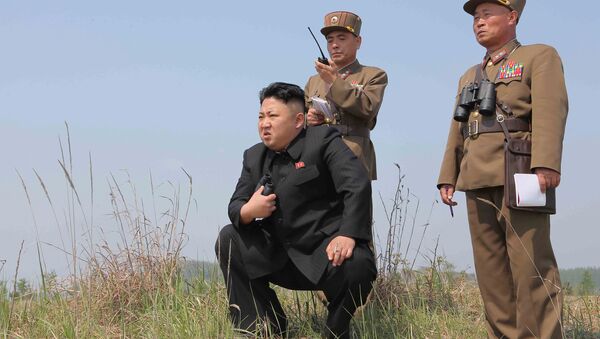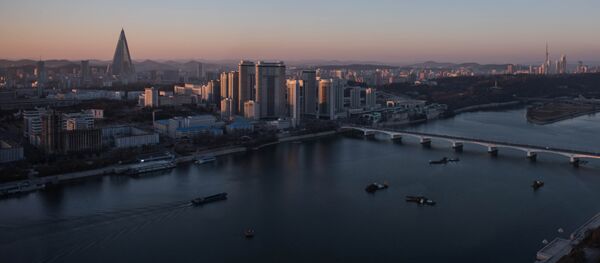"We have noted relevant statements made by president Trump this morning and I want to stress that China's position on the Korean peninsula issue remains firm and clear… [China hopes] that all sides will be able to contribute to the de-escalation of the situation on the Korean peninsula and return to negotiations and dialogue," Hua Chunying, the spokeswoman for the Chinese Foreign Ministry, said Wednesday.
The statement was made after US President Donald Trump had stated in a speech in Seoul earlier in the day that China and Russia need to downgrade diplomatic relations and cut economic ties with Pyongyang.
READ MORE: 'Do Not Try Us': Trump Warns North Korea, Offers 'Path to a Much Better Future'
According to Hua, China has also noted Trump's call for Beijing to put more effort into resolving the issue.
"China is strictly and fully implementing its international commitments," the spokeswoman said.
Reaction to Trump's Demand Amid Asia Tour
The US president's address to South Korea’s National Assembly was made ahead of his visit to China as part of his 13-days trip to the Asia-Pacific, with the North Korean issue being high on the agenda.
Russia has already commented on Trump's demand, saying that Moscow has never supported a total embargo of North Korea, adding that the joint Russia-China proposals to settle the North Korean crisis are an alternative to the hard line chosen by Washington.
READ MORE: Ryabkov: Russia Never Supported Total N Korea Embargo, There is an Alternative
Previously, China has decided to partially ban imports from North Korea after repeated calls by the US president, urging Beijing, the DPRK's largest trade partner, to put more pressure on Pyongyang.
Denuclearization of the Korean Peninsula
Since 2003, China, Japan, North Korea, Russia, South Korea and the United States have been trying to find a peaceful solution to the denuclearization of the Korean peninsula through a series of six-party talks.
At first, in 2005, North Korea agreed to freeze its nuclear program in return for fuel aid and other types of compensation. However, the talks fell apart in 2008 and North Korea officially withdrew from the six-party negotiations in 2009, following a rebuke from the UNSC over Pyongyang's recent failed satellite launch.
READ MORE: North Korea: We Will Build Nuclear Power Until the US Leaves Us Alone
China has been trying to convince parties to resume the six-party talks, considering them "possible", as Chinese Foreign Minister Wang Yi had stated in February.
In September, Pyongyang successfully tested a hydrogen bomb in its sixth nuclear test. The move triggered the introduction of sanctions by UNSC, banning the sale of natural gas to North Korea and exports of textiles from the country as well as capping crude and refined oil imports.




